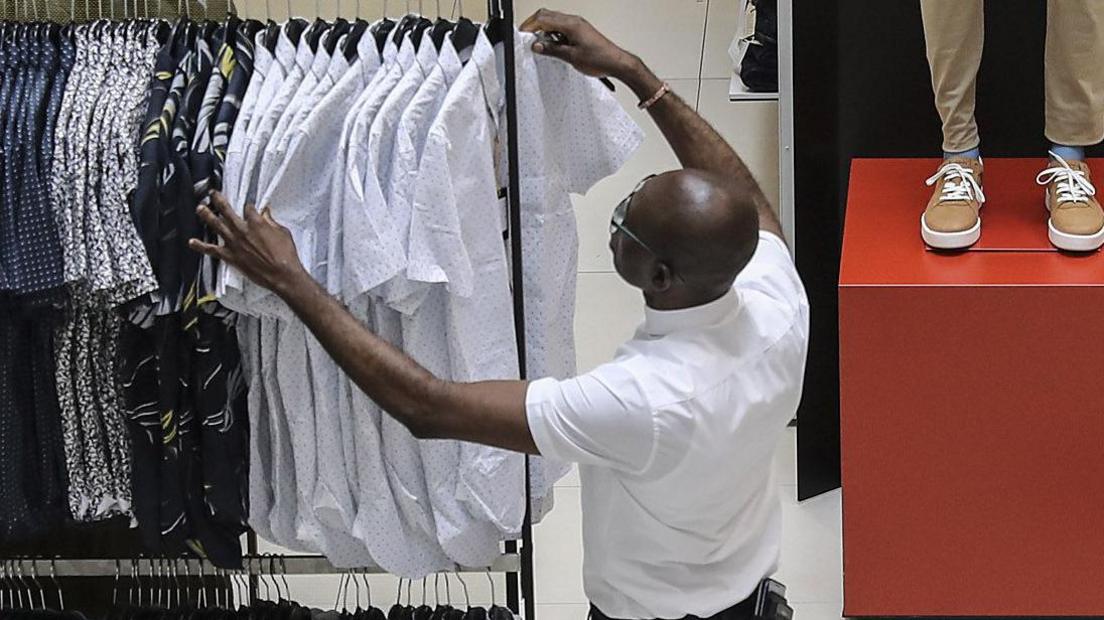Shoppers shun department stores as prices rise

- Published
Shoppers are turning their backs on department stores amid rising prices, official figures suggest.
The volume of sales in department stores fell 3.8% last month, according to official figures.
Overall, sales stalled in March, the Office for National Statistics (ONS) said, with no growth at all from February.
Rising prices have been blamed for many retailers having a hard start to the year.
Heather Bovill, senior statistician for the ONS, said that hardware stores, furniture shops, petrol stations and clothing stores all saw a rise in sales last month.
"However, these gains were offset by falling food sales, and in department stores where retailers say higher prices hit trading," she added.
Figures released this week showed inflation - the pace at which prices rise - has fallen to its lowest rate in two-and-a-half years.
However, lower inflation does not mean prices overall are coming down, they are just rising less quickly.
"Lower inflation and the first 2% cut to National Insurance which was felt in January’s pay packets has yet to translate into a sustained recovery in spending," said Lisa Hooker from PwC.
However, over the first three months of the year, the ONS said sales volumes were up 1.9% compared with the previous three months, which analysts said underpinned expectations that the UK is emerging from recession.
There is also hope that spending will pick up later in the year.
"The prospect of interest rate cuts and the boost to real household incomes, from falling inflation and the 2p cut to national insurance in April, suggest the recovery in consumer spending will continue throughout this year," said Alex Kerr, assistant economist at Capital Economics.
The recent fall in inflation means the Bank of England is expected to start to cut interest rates this year.
The Bank next meets to discuss rates on 9 May, although analysts are not expecting any rate cuts until June at the earliest.